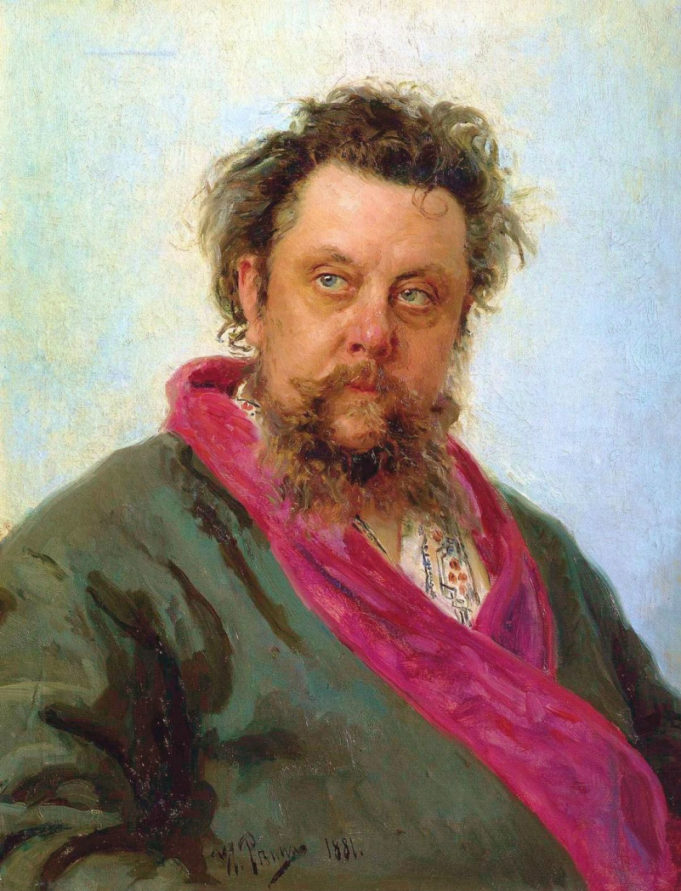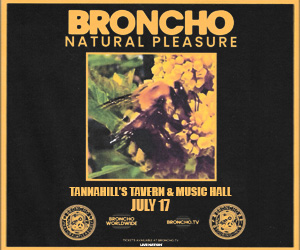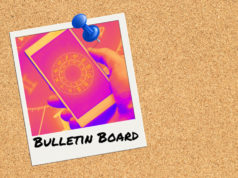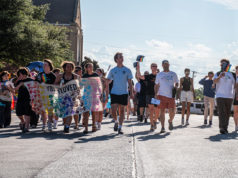Some things seem to happen reliably once during every Cliburn: I hear piano music in my sleep, someone calls me a moron in the comments section of this blog, and we get a torrential rainstorm. The skies opened up during the afternoon break and kept most of us in the hall, though some of my colleagues braved the rain to get to their computers in the press room across the street.
After getting some flack about my negative comments about Sun Yutong, I’ll admit to liking his semifinal recital somewhat better. His rendition of Beethoven’s “Les Adieux” Sonata is easy to follow and doesn’t drag, even if it lacks some inventiveness. He also has the idiom of Liszt’s Un sospiro, even if the piece does run out of breath (har har) near the end. He ends with Mussorgsky’s Pictures at an Exhibition, which is all over the place. He does a bunch of weird things with the interpretation that I don’t like, though they do make me think anew about this piano suite that I’ve heard a number of times. He gets fiddly and fussy at the oddest times, playing “The Gnome” like it’s one of Prokofiev’s late sonatas, dallying inexcusably in “The Old Castle,” and conjuring up the requisite big sound for “The Great Gate of Kiev” while forgetting the dramatic sweep. It isn’t all bad, though: He’s well-suited to “Tuileries,” “Oxen,” and “Limoges,” and he plays the wildest “Baba Yaga” that I’ve ever heard. There’s that, at least.
Another thing that always seems to happen once a Cliburn is me hearing Carl Vine. Kim Hong-gi plays the Australian composer’s First Piano Sonata, and pours forth torrents of sound almost equal to the water that’s pouring forth outside the hall. He brings his pearly tone and some great energy to this crowd-pleasing 1990 work. That energy carries over to the start of his performance of Schumann’s Kreisleriana, which he plays with crystalline beauty. Unfortunately, he gets lost somewhere in the middle and never quite finds his way back. He ends his program with Samuel Feinberg’s piano transcription of the third movement of Tchaikovsky’s “Pathétique” Symphony. Whether it’s the transcription or the performance, the piece sounds entirely pianistic, and you’d never guess it used to be an orchestral work. Whether that’s good or bad depends on your taste. The native of Seoul gives what he has to give to the performance, but I’m still not convinced that this works either as a technical showpiece or as a serious piece of music.
The rain pours down some more while we’re all at dinner, enough to depress attendance significantly compared to last night. My friends Rachelle and Philip were supposed to join me, but they weren’t kept away by the rain. Rather, their new baby has a minor medical issue, though I’m happy to report that the little boy is okay.
After a limp quarterfinal performance, the brash Yury Favorin is back and ready for a rip-snorting evening of bravura pieces that bring us out of our seats. Too bad he’s scheduled to play Beethoven’s “Hammerklavier” Sonata instead. What on earth possessed him to choose this lengthy masterwork that places a premium on structure and gravity? Nothing in his performances this year or in 2013 suggests he’s capable of handling this intellectual piece. He badly overplays the first two movements, settling down in the third only to make Beethoven’s metaphysical musings into an interminable slog. Even though he tears through the final movement without really digesting it, you can still imagine it being part of a better performance, which is more than you can say for the rest of the sonata. The other work on the bill, Shostakovich’s berzerk First Piano Sonata, is much more Favorin’s (lightning) speed. This one-movement piece was a personal favorite of the composer’s, and he supposedly bloodied his hands playing it for his teachers at the St. Petersburg Conservatory. Favorin doesn’t get blood on the keys that I can see, but he dispatches its fortissimo double notes, glissandi, and blocks of chords requiring three staves on the page with fearsome ease. He really needs to stick to what he’s good at.
His Russian compatriot Georgy Tchaidze rounds out the evening. I missed his quarterfinal recital, which I can only hope was mind-blowingly great, because this is the second performance of his that has bored me silly. He starts with Schumann’s Waldszenen (“Forest Scenes”) and manages to rob “Verrufene Stelle” (“Haunted Place”) of its mystique and “Jäger auf der Lauer” (“Hunters on the Lookout”) of its drama, turning this jaunt in the woods into a trudge. Tchaidze does do some nice filigree work on Medtner’s “Alla Reminiscenza,” but he also plays Pictures at an Exhibition, and the third set of pictures we’ve had at this competition are the least compelling. Aside from the puzzling decision to play “Samuel Goldenberg and Schmuÿle” as if it’s a climactic confrontation from Mussorgsky’s Boris Godunov, this is a performance with a modicum of workmanship, skill, and beauty, but not nearly enough definition in the pictures or even a trace of feeling for the music.












